
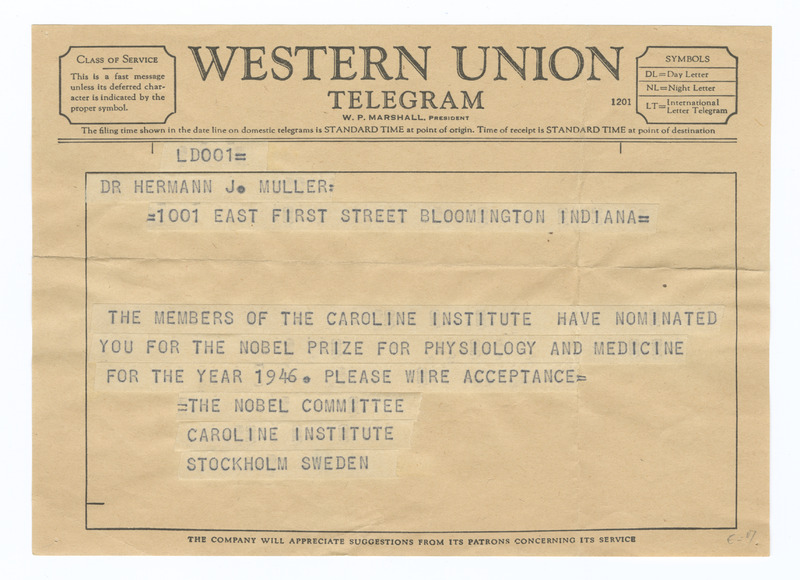
The official telegram informing Muller of his Nobel Prize
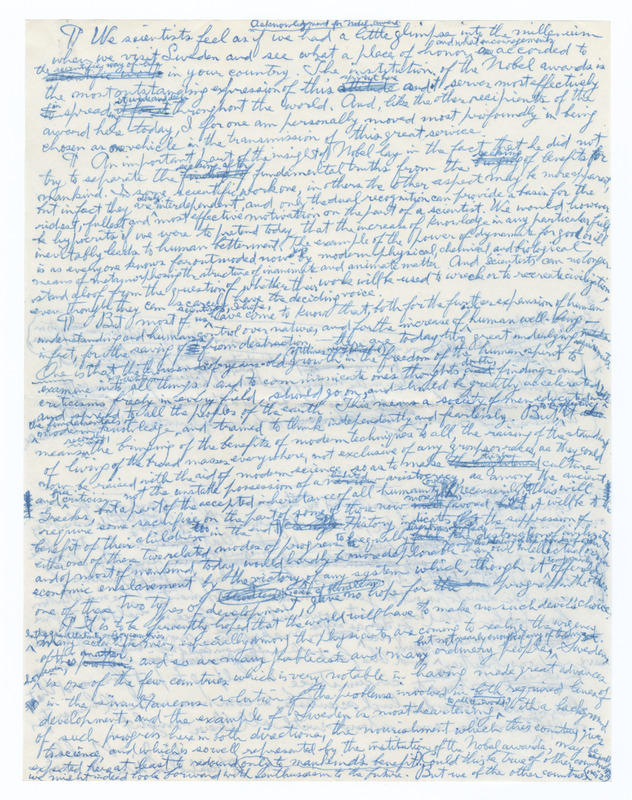
Muller's speech at the Nobel banquet. Like most everything he wrote, he did it at the last minute.
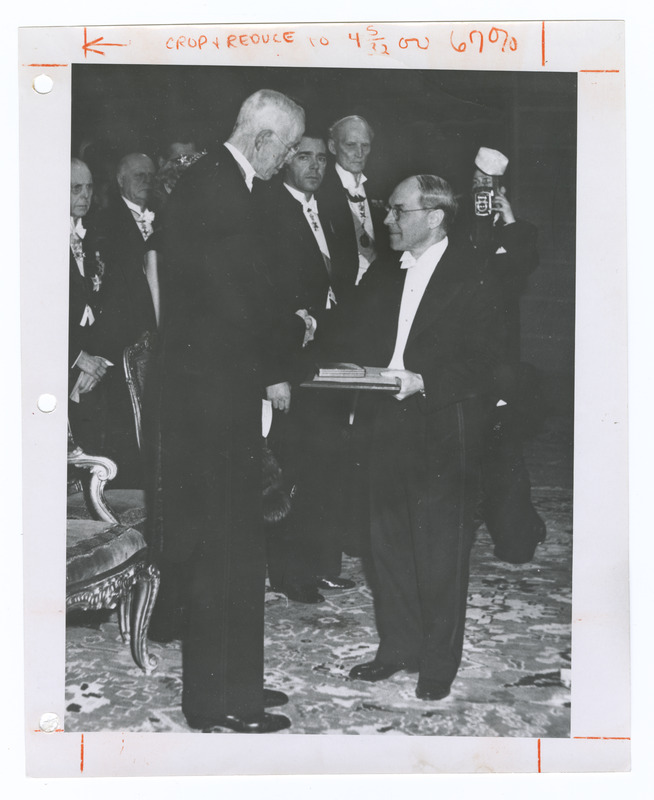
Muller receiving his Nobel prize from King Gustav of Sweden.
IU could not have offered Muller a job at a better time. The very next year he was awarded the Nobel Prize for his research on X-rays and mutations. Muller had been out of town for the official telegram, so for several days he dealt with reporters calling him and asking for statements, and warm congratulations from colleagues, while still trying to confirm he had actually won it. In his Nobel speech he continued to emphasize his perennial theme of the importance of genetic understanding for the future of humanity.
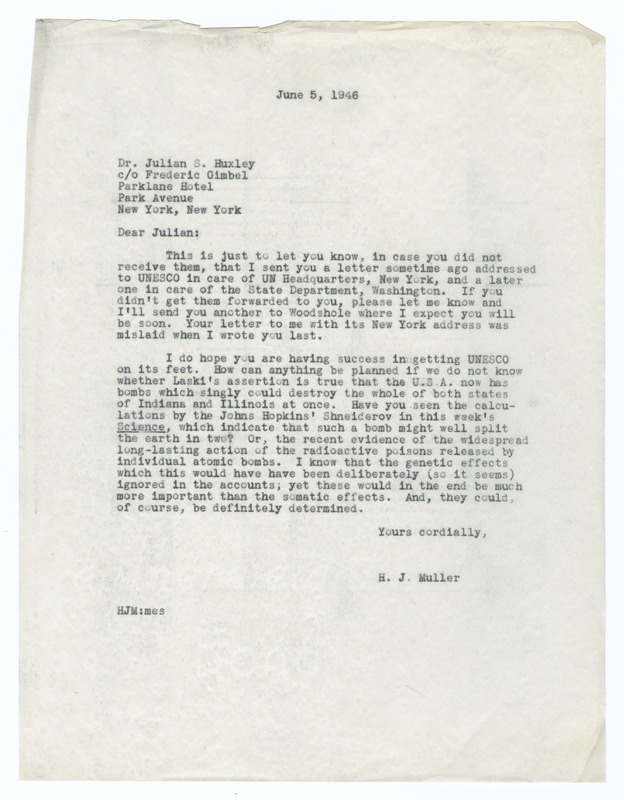
This letter to Julian Huxley exemplifies the intense uncertainty and concern that came with the development of nuclear weapons. Most of Muller's worries however, were slightly less imminently apocalyptic.
The Prize was fortuitously timed for Muller as well. In the wake of the atomic bombings of Hiroshima and Nagasaki, radiation, atomic energy, and nuclear armaments became matters of international concern. Additionally, a particularly rabid form of anti-communism hatched in the post-war years as the Soviet Union emerged as America’s rival. The gravitas provided by the Nobel Prize would help Muller greatly in the years ahead as he used his scientific position to combat anti-communist witch hunts (Muller was subpoened to testify before the House Committee on Un-american Activities in 1953 where he was exonerated), the American government’s endless hunger for all things nuclear, and the international echoes of Lysenkoism.
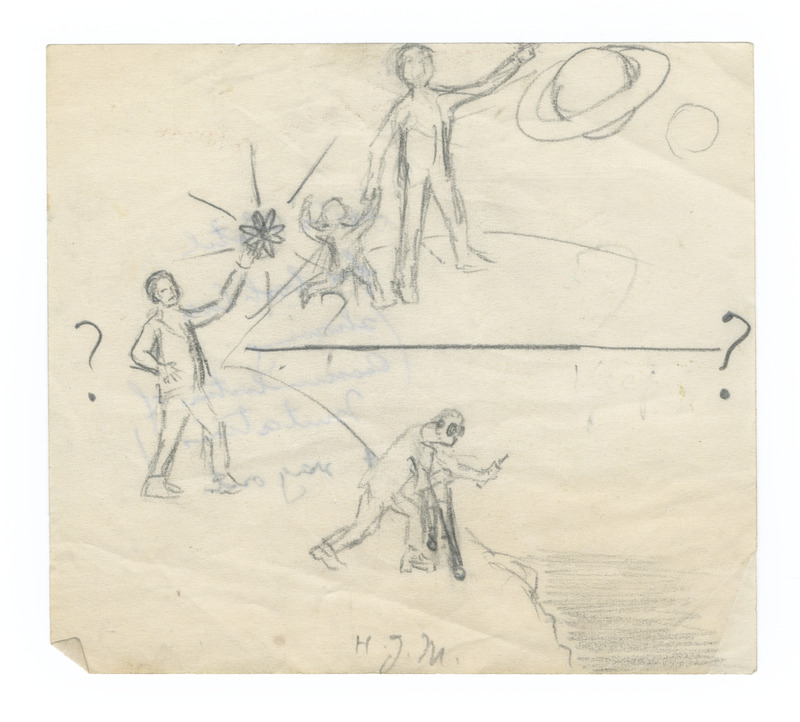
In these two pictures, Muller illustrates what would happen if humanity never takes seriously the long-term risk caused by accumulating mild mutations.
In his address, at an IU convocation in his honor as Indiana University’s first Nobel Laureate, Muller warned about the dangers of radiation and what the power of the atomic bomb meant to civilization. Several drafts are in the collection. As a geneticist, he specifically worried about the effects the atomic bomb would have on not just those in the blast radius, but the more subtle effects of genetic damage. He stressed that mutations did not look like they did in the comics, or even in medical texts, but rather they could cause minor heritable harms whose full impact would be measured over hundreds or even thousands of years as a slow drag on humanity